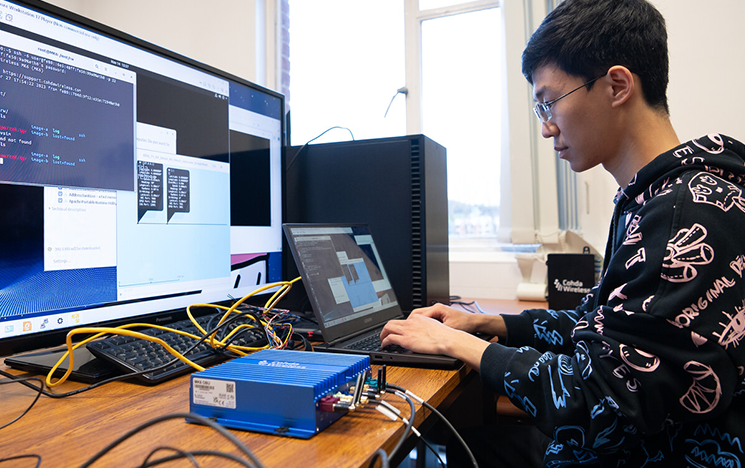
Studying with us
Explore our courses in Engineering, Computer Science and Artificial Intelligence, and Product Design and learn more about placement opportunities.
Learn about our high-quality courses and world-leading research in Engineering, Computer Science and Artificial Intelligence, and Product Design.
Contact the School office: email FoSEM-info@sussex.ac.uk or call 44 (0)1273 678195